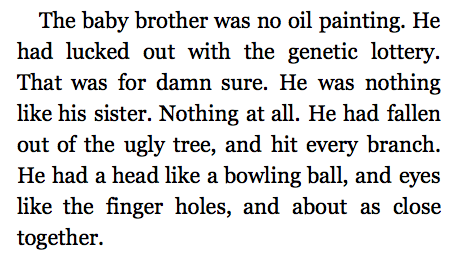A double ration of something
Readers of yesterday's discussion of lucking out may wonder what Jack Reacher, a somewhat eccentric man of action, would think of an extended discussion of his lexical choices. For a clue, if not an answer, we can turn to a passage in the same novel where he learns some crucial information from an old MP colleague named Stan Lowrey. Reacher had earlier asked Lowrey to make unofficial inquiries about a woman named Audrey Shaw, whose fingerprints were found in the house of one of the women murdered in The Affair.
Read the rest of this entry »


